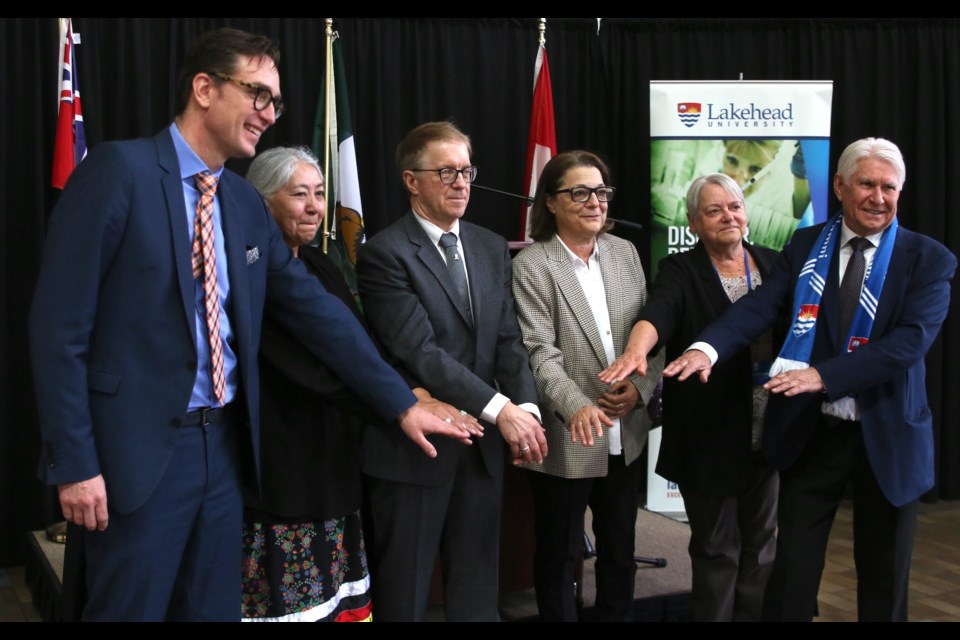THUNDER BAY -- From vampire bats walking on treadmills to exploring the role artificial intelligence can play in scientific research, there is something for every inquisitive mind during Lakehead University’s 19th annual Research and Innovation Week.
“I think what is most important is people have the opportunity to see what is actually happening in research and innovation at the university,” said Andrew Dean, vice-president of research and innovation at Lakehead University.
Research and Innovation Week kicked off on Monday and it will include numerous events and presentations throughout the week celebrating knowledge, science, technology, the arts, and everything in between.
This year will include numerous events, such as graduate student three-minute thesis presentations, an art tour unveiling new artistic works, an Indigenous panel, and a gala Thursday evening.
All events and presentations are open to the public throughout the week and Dean is encouraging everyone to come out and celebrate all that is being done in research and innovation at Lakehead.
“It is a year-long journey that we celebrate, but it’s been part of the university right from the very beginning,” Dean said.
“Research and innovation is a key to driving prosperity, productivity, and a better life as well. So it is wonderful to have this chance to show to the public and show to ourselves and to have a chance to really celebrate some of the great work happening throughout the year.”
This year’s Research and Innovation Week opened with a keynote address by journalist and scientist Dan Riskin, who hosted the television series Daily Planet.
Riskin said he is excited to be celebrating research and innovation at Lakehead University because they are two things that often do not get enough credit.
“Places like Lakehead are a big part of their communities, and sharing what they are learning and how they are learning it is part of how they give back,” he said.
“A university can only exist because people want it to be there. So it is really important to build trust and a connection to the community so the community feels good about the resources going to it.”
Dean said he was very excited to have someone like Riskin come to the university to promote science and make it exciting for everyone involved.
“Making science and research available through a keynote speaker is the kind of thing we really like to do with the public and it’s a great way to kick the week off,” he said.
Before the keynote speech on Monday, Riskin gave a presentation to more than 400 Grade 7 and 8 students about being a scientist and his research into how bats move on their feet, which included a video of vampire bats walking on a treadmill.
“That was very moving for me. I love talking to kids about this stuff. It is an investment in the future. Some of them will grow up to be scientists, but they are the community right now,” Riskin said.
“So when you are communicating to those kids and talk about why science and technology is exciting, you are sharing it with the community. They are part of the community and they will share it with their families. There is intergenerational learning that happens both ways.”
Riskin’s keynote address focused on the rise of artificial intelligence and the impact it will have on the sciences.
He said research and innovation feels like something only a human can do, but A.I. has shown that it can now do both.
“So the big question is what does that look like in a time of A.I. I am really excited to explore some of those themes,” Riskin said.
“Spoiler alert, I don’t have all of the answers, but I think the process by which we look for those answers is worth thinking about. And the same skills we develop for research and innovation are the same skills that will help us embrace A.I. and thrive with it.”
More information and a complete list of events can be found on the Research and Innovation Week website.
